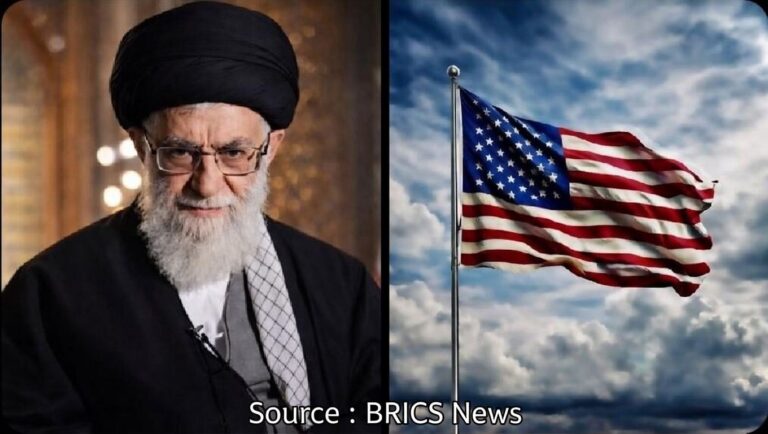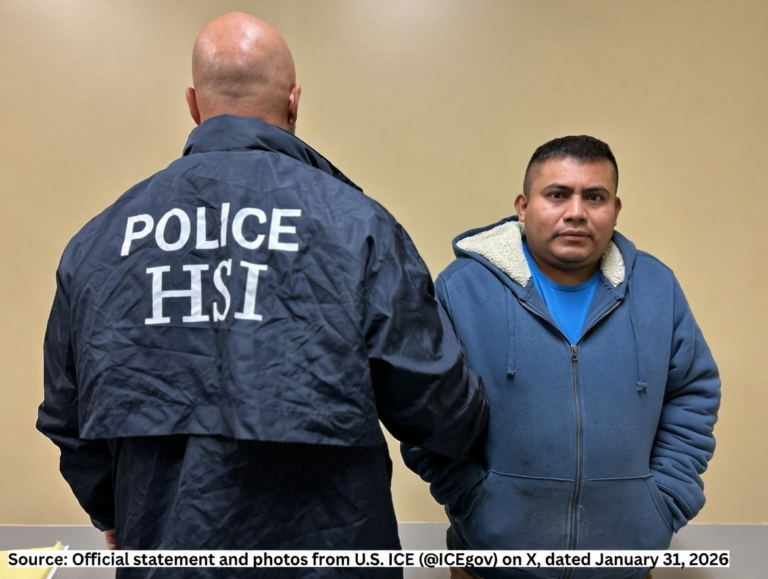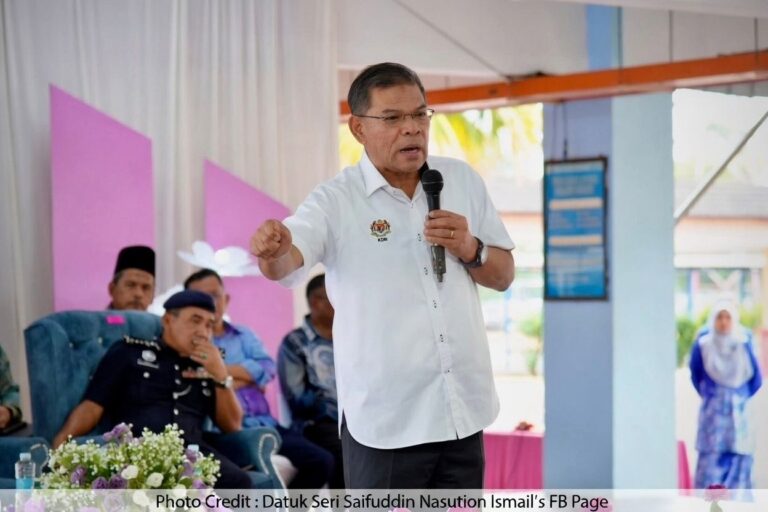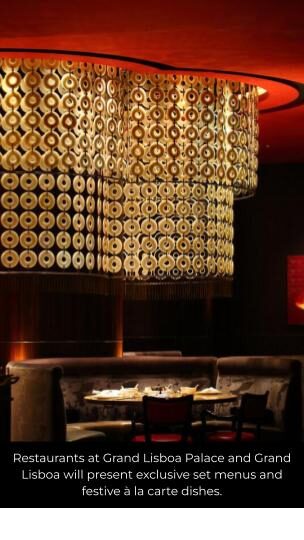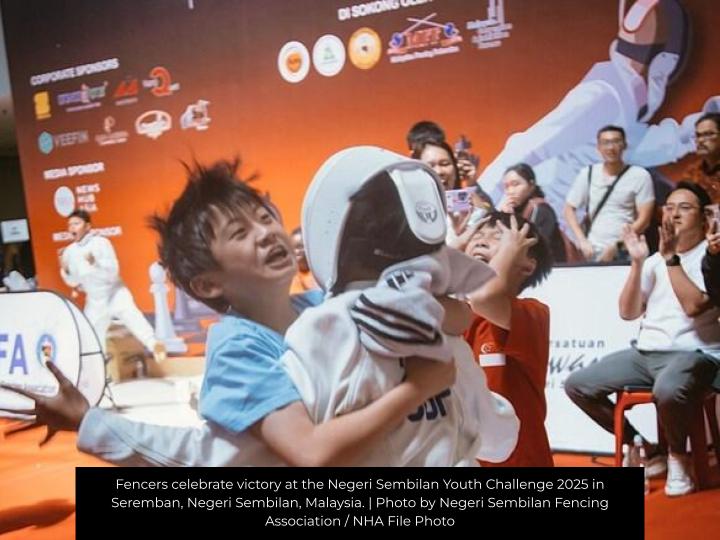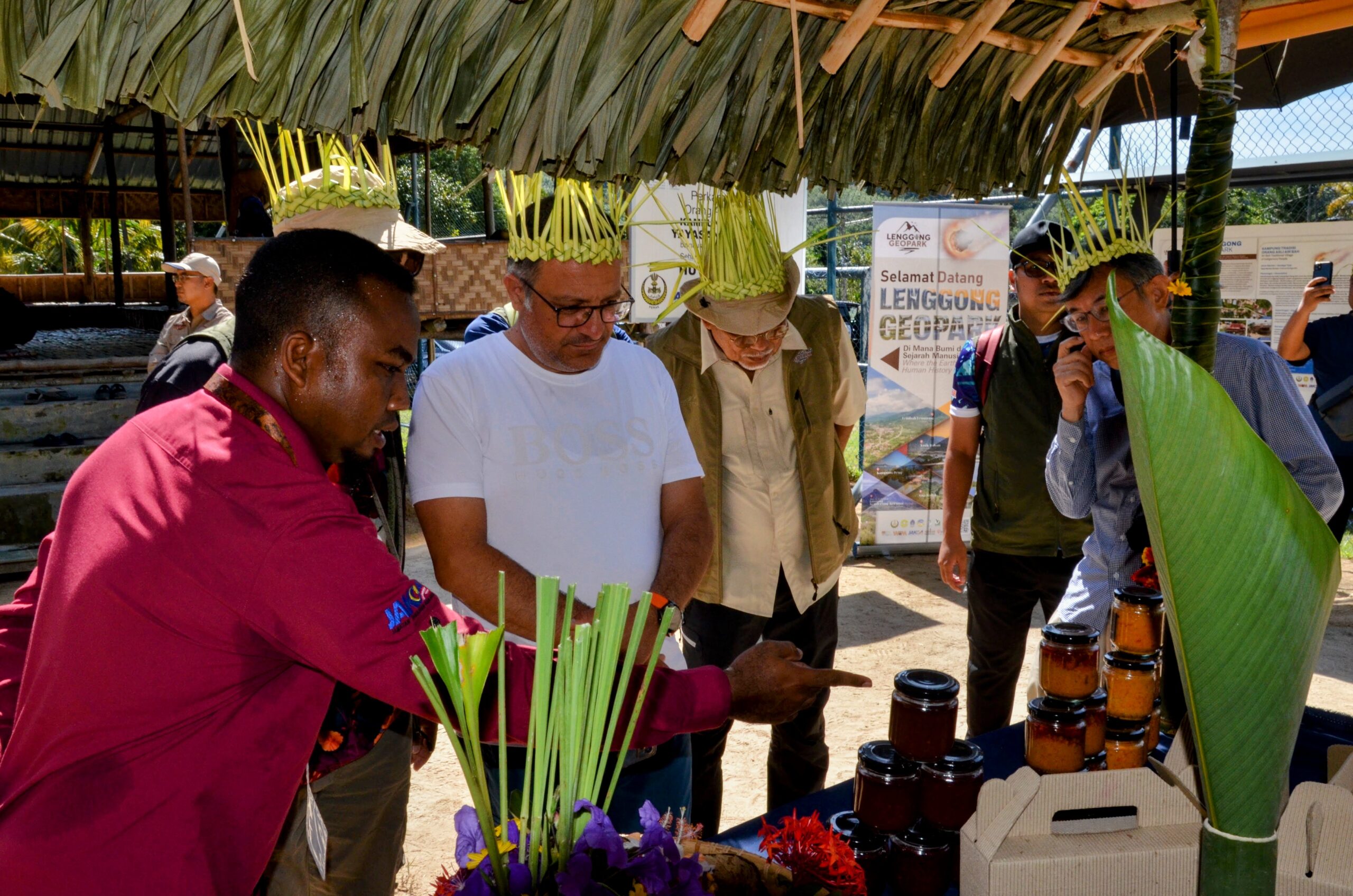
LENGGONG, July 21 (Bernama) — Lanoh, an indigenous tribe of Peninsular Malaysia which have settled around the Lenggong region of Hulu Perak since before the 1920s is rich with unique culture and traditions. This Semang-Negrito subgroup is concentrated in Kampung Air Bah where the largest number of recorded residents being around 300 people. This village falls within the UNESCO World Heritage Site designated in 2012. As such, their role of this indigenous community is invaluable in preserving this global heritage.
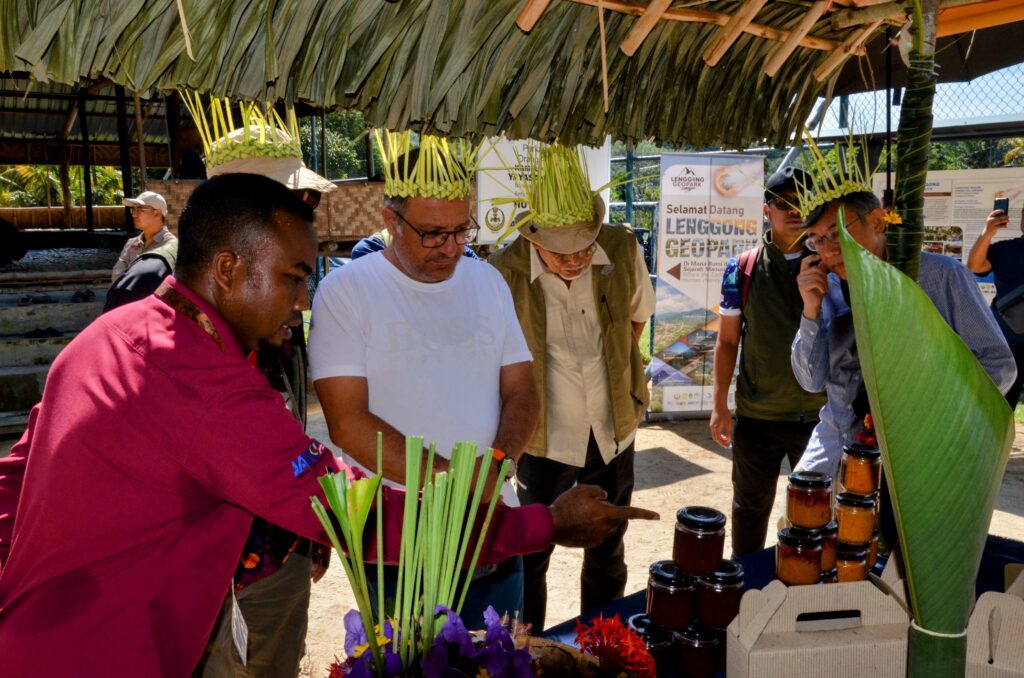
On 14 July 2025, the Lanoh community received a visit from a delegation of the UNESCO Global Geopark which aimed to evaluate the Lenggong Valley as Malaysia’s third UNESCO Global Geopark (UGGp), after Langkawi and Kinabalu.
During the visit, the Lanoh Community Leader, Tok Batin Mohd Rizal Alias, said that they introduced the Lanoh heritage through traditional foods, handicrafts sourced from the jungle and a blowpipe demonstration.
“During this visit, I found that the evaluators were intrigued by the dishes we served which were food they had never tasted before. They were amused to try something new, and they really enjoyed it.”
“Among the dishes we served was rice cooked in bamboo, known in the Lanoh language as po’oil. We also served umbut bayas and three types of Lanoh sambal which are Be’Het, Hi’Pie, and Be’Yik,” he said.
The Lanoh sambal has been made into a local product by the residents of Kampung Air Bah with its market now reaching neighbouring countries such as Brunei and Singapore. According to Tok Batin Mohd Rizal, as a result of UNESCO’s recognition of the Lenggong Valley, people from outside the region has begun to learn about the Lanoh tribe, especially the villagers here.
The evaluation session for the Aspiring Lenggong UNESCO Global Geopark was conducted from 11 to 17 July and was led by two evaluators, Dr. Mahito Watanabe from Japan and Dr. Ahmet Serdar Aytaç from Turkey. The visit to Kampung Air Bah was also joined by the Lenggong Geopark Malaysia management team, experts from various fields, and representatives from the Perak Department of Orang Asli Development (JAKOA).
This delegation was welcomed by the Bambusa Foundation, which serves as the guardian of the village. The foundation was founded by Dr. Muhammad Hakim Abdullah.
In preserving the history of human civilisation in this country, the ethnography and archeology of the Lanoh community are vital not only to conserve the cultural heritage of the Orang Asli, but also for the benefit of future generations.





